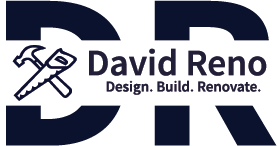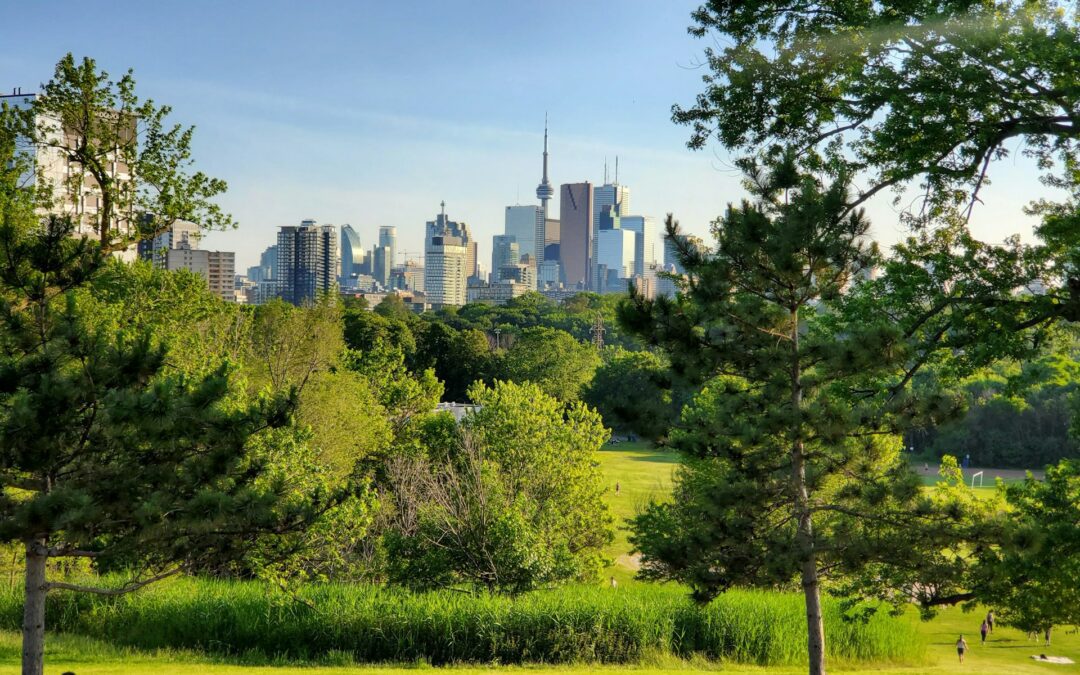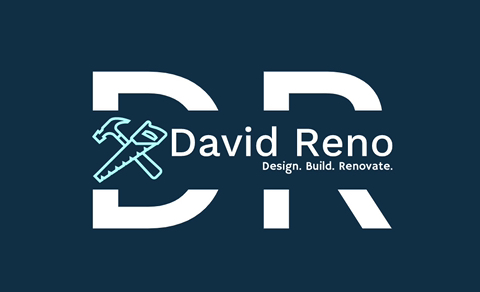As the urban skyline of Toronto continues to evolve, many prospective homeowners find themselves at a crossroads: Should they build a new house or buy an existing one? This decision is particularly poignant in 2024, given the current market dynamics, economic conditions, and evolving lifestyle preferences. At David Reno, we understand that this choice can significantly impact your financial well-being and quality of life. In this comprehensive guide, we’ll delve into the pros and cons of building versus buying a house in Toronto, helping you make an informed decision that aligns with your needs and aspirations.
The State of Toronto’s Housing Market in 2024
Before we explore the intricacies of building versus buying, it’s essential to understand the current housing market landscape in Toronto.
Market Overview
Toronto’s real estate market remains one of the most competitive in Canada. In 2024, the city continues to see robust demand for housing, driven by a strong economy, population growth, and a consistent influx of international immigrants. However, high demand is matched with limited supply, keeping property prices elevated.
Economic Considerations
Interest rates have seen fluctuations, and while they are currently moderate, any changes can significantly impact mortgage affordability. Additionally, construction costs have been rising due to inflation and supply chain disruptions, affecting both new builds and renovations.
Lifestyle Trends
The post-pandemic era has redefined homebuyer preferences. There is a growing demand for homes with more space, outdoor areas, and the flexibility to accommodate remote work. These trends influence whether buyers opt for new builds that can be customized or existing homes that may require renovations to meet these needs.
Building a House: The Pros and Cons
Building a house from scratch can be an enticing prospect, offering the allure of a custom home tailored to your exact specifications. However, it also comes with its own set of challenges.
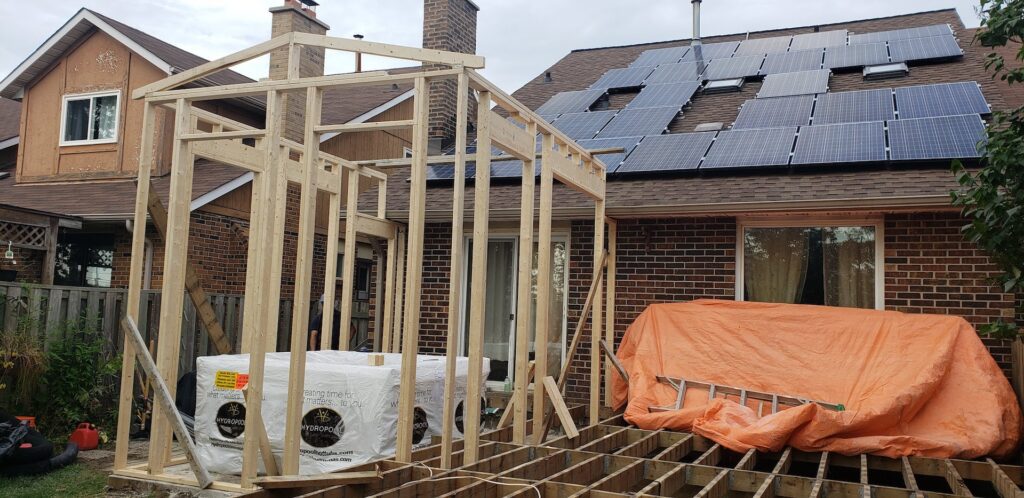
Pros of Building a House
- Customization: One of the most significant advantages of building a new home is the ability to customize every aspect, from the floor plan to the fixtures. You can design a space that perfectly suits your lifestyle and preferences.
- Energy Efficiency: New homes can be built with the latest energy-efficient technologies, reducing long-term utility costs and environmental impact.
- Modern Amenities: A new build allows you to incorporate the latest smart home technologies and modern amenities, ensuring your home is up-to-date with current trends.
- Lower Maintenance Costs: With new construction, everything is brand new, meaning you are less likely to face immediate repair and maintenance issues.
Cons of Building a House
- Higher Upfront Costs: Building a house can be more expensive upfront than buying an existing one, especially when considering the cost of land, permits, and construction.
- Time-Consuming: The process of building a house can take several months to over a year, which can be a significant drawback if you need to move in quickly.
- Unpredictability: Construction projects can face delays and unexpected issues, leading to increased costs and prolonged timelines.
- Financing Challenges: Obtaining a construction loan can be more complicated than securing a traditional mortgage, often requiring more stringent approval processes.
Buying a House: The Pros and Cons
Purchasing an existing home is the more traditional route, offering its own set of benefits and drawbacks.
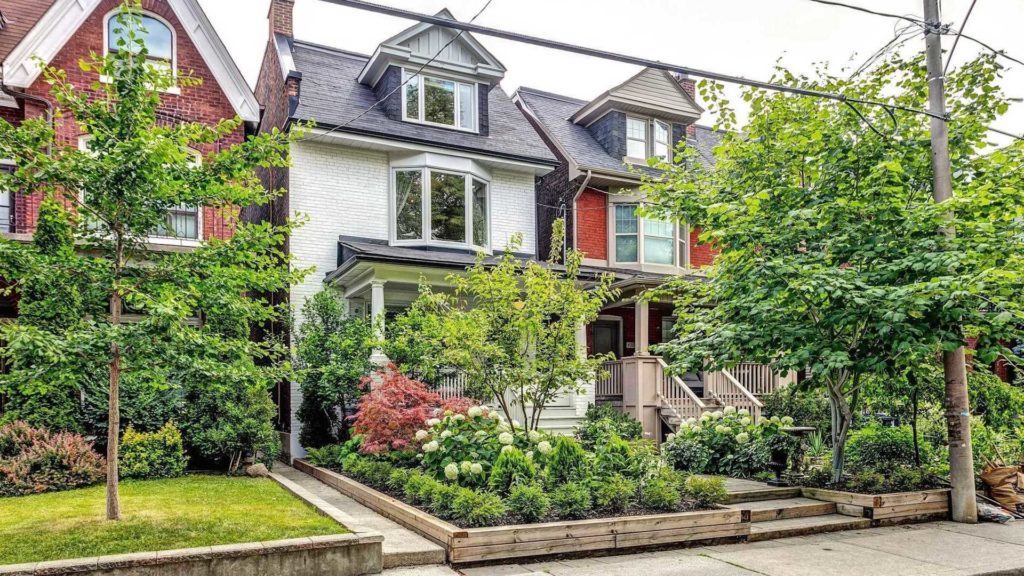
Pros of Buying a House
- Immediate Availability: One of the main advantages of buying an existing home is that you can move in almost immediately after closing the sale.
- Established Neighborhoods: Existing homes are typically located in established neighborhoods with developed infrastructure and community amenities.
- Potential for Renovations: Purchasing an older home can offer the opportunity to renovate and personalize the space to suit your needs while potentially increasing its value.
- Fixed Costs: The cost of buying a house is generally more predictable, with fewer surprises compared to the potential fluctuations in construction costs.
Cons of Buying a House
- Limited Customization: When buying an existing home, you may have to compromise on certain aspects, as it’s unlikely to meet all your specific requirements.
- Maintenance and Repairs: Older homes can come with a host of maintenance issues and may require significant repairs or updates to meet modern standards.
- Energy Inefficiency: Many existing homes may not be as energy-efficient as new builds, leading to higher utility bills and a larger environmental footprint.
- Competitive Market: Toronto’s real estate market is highly competitive, and finding the right home can be challenging and often involves bidding wars.
Financial Considerations
When deciding whether to build or buy, financial considerations play a crucial role. Here’s a deeper look at the cost implications of each option.
Building Costs
- Land Purchase: The cost of land in Toronto can be prohibitively high, especially in desirable areas.
- Construction Costs: This includes materials, labor, permits, and any unforeseen expenses. Given the current market conditions, these costs have been rising steadily.
- Financing: Construction loans can be more complex and typically have higher interest rates compared to traditional mortgages.
- Hidden Costs: Building a new home can come with hidden costs such as landscaping, interior finishing, and connecting utilities.
Buying Costs
- Purchase Price: The initial cost of buying a house is straightforward and typically requires a down payment and securing a mortgage.
- Renovation Costs: While an existing home might be cheaper upfront, you may need to invest in renovations to tailor it to your needs.
- Maintenance Costs: Older homes can incur higher maintenance costs, which should be factored into the overall budget.
- Market Competition: In a competitive market, you might end up paying more than the asking price due to bidding wars.
Customization and Personalization
The ability to customize and personalize your living space is a significant factor for many homeowners. Here’s how building and buying compare in this regard.
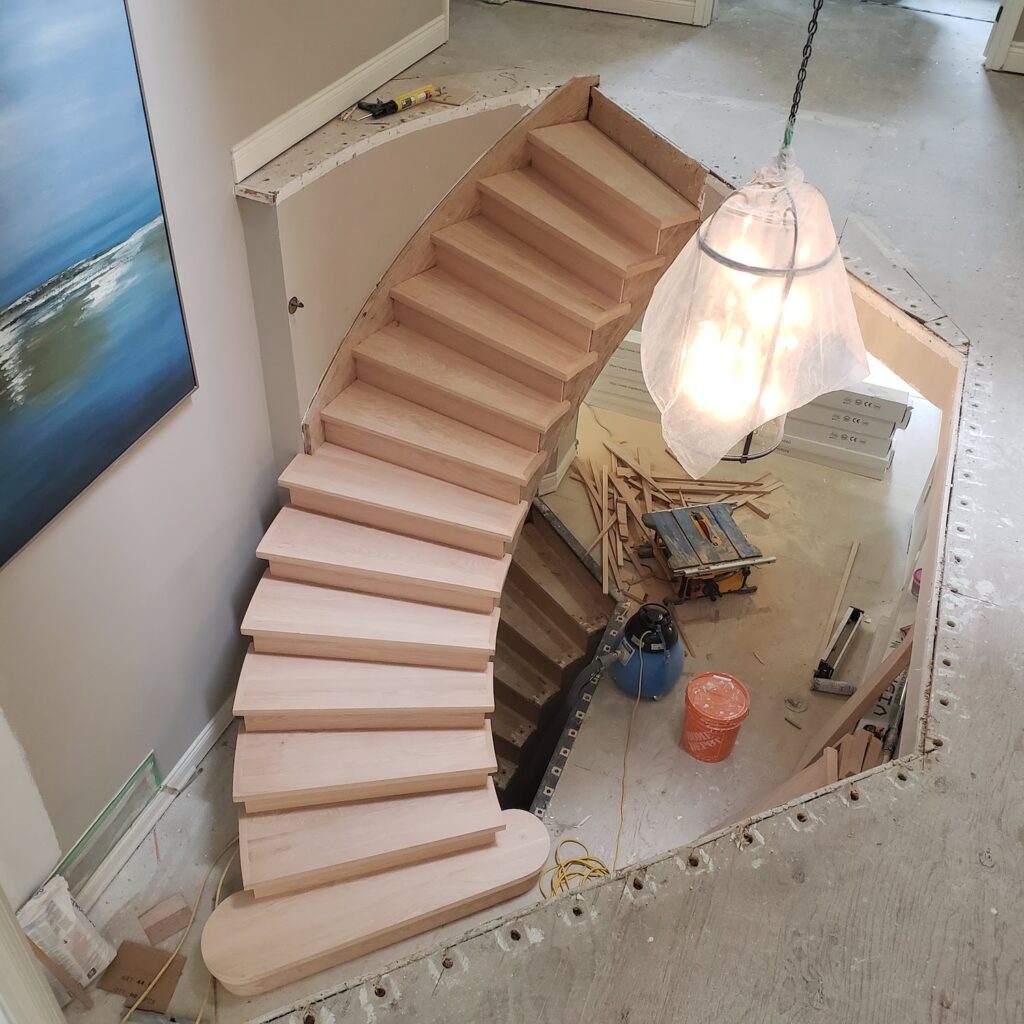
Customization in Building
Building a new home offers unparalleled opportunities for customization. You can work with architects and designers to create a space that perfectly aligns with your vision. From choosing the layout to selecting materials and finishes, the possibilities are endless. This is particularly advantageous if you have specific requirements, such as a home office, a gourmet kitchen, or an in-law suite.
Personalization in Buying
While buying an existing home limits your ability to customize the layout, it does offer the potential for personalization through renovations. At David Reno, we specialize in transforming existing spaces to meet modern needs and preferences. Whether it’s a kitchen remodel, a bathroom upgrade, or a complete home renovation, we can help you tailor an existing home to better suit your lifestyle.
Environmental Impact
Sustainability and environmental impact are increasingly important considerations for today’s homeowners. Here’s how building and buying compare from an environmental perspective.
Building a Green Home
Building a new home allows you to incorporate the latest in green building technologies and sustainable practices. You can choose energy-efficient materials, install solar panels, and ensure that your home is well-insulated and designed to minimize energy consumption. This can significantly reduce your carbon footprint and lead to long-term savings on utility bills.
Upgrading an Existing Home
While older homes may not initially be as energy-efficient, there is potential to upgrade them. Retrofitting an existing home with energy-efficient windows, insulation, and appliances can improve its sustainability. However, it’s essential to consider the environmental cost of any demolition and construction work required for these upgrades.
Lifestyle Considerations
Your lifestyle and long-term plans are critical factors in the decision to build or buy a house. Here’s how each option aligns with different lifestyle needs.
Building for a Future-Ready Home
If you have a clear vision of your future and specific needs that are unlikely to change, building a new home might be the best option. You can design your home to accommodate future family growth, work-from-home arrangements, and evolving lifestyle preferences. A custom-built home can be more easily adapted to meet your long-term needs.
Buying for Flexibility
Buying an existing home can offer more flexibility, especially if you’re not entirely sure about your long-term plans. It allows you to move into an established neighborhood and make gradual changes over time. This can be particularly advantageous if you anticipate changes in your job, family size, or other lifestyle factors.
Resale Value
Resale value is an important consideration, even if you’re not planning to sell your home in the near future. Here’s how building and buying impact the potential resale value of your property.
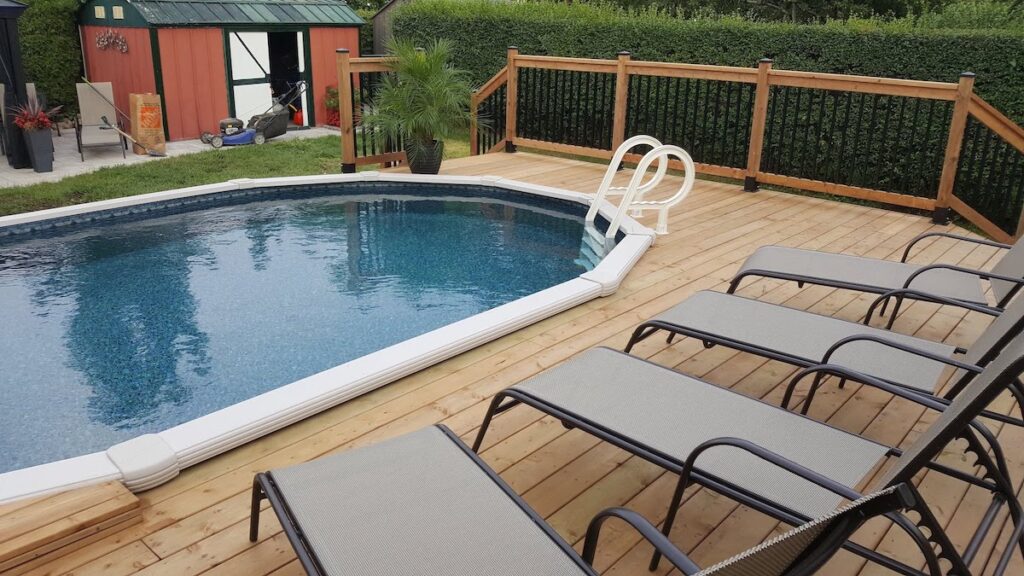
Building a Home with Future Resale in Mind
A well-designed, custom-built home in a desirable location can command a high resale value. By incorporating modern amenities and energy-efficient features, you can enhance the appeal of your home to future buyers. However, it’s essential to consider market trends and avoid over-customizing, as highly personalized features may not appeal to a broad audience.
Buying and Renovating for Value
Purchasing an existing home in a sought-after neighborhood and making strategic renovations can also boost resale value. At David Reno, we specialize in renovations that enhance the functionality and aesthetics of homes, making them more attractive to potential buyers. Updating kitchens, bathrooms, and living spaces can significantly increase the market value of an older home.
Navigating the Decision: Building vs. Buying
Deciding whether to build or buy a home in Toronto in 2024 requires careful consideration of various factors. Here’s a step-by-step guide to help you navigate this decision:
Step 1: Assess Your Needs and Priorities
- Space Requirements: Determine the amount of space you need and any specific features or amenities that are important to you.
- Timeline: Consider your timeframe for moving. If you need a home quickly, buying might be the better option for you. If you have more time and can wait for construction, building may be feasible.
Step 2: Evaluate Your Budget
- Financial Capacity: Assess your financial situation, including your savings, income, and ability to secure financing.
- Cost Comparison: Compare the total costs of building versus buying, including land purchase, construction, renovations, and ongoing maintenance.
Step 3: Consider Location and Land Availability
- Desirable Areas: Identify the neighborhoods you’re interested in and evaluate the availability and cost of land if you’re considering building.
- Established Neighborhoods: For buying, focus on neighborhoods with good schools, amenities, and potential for property value appreciation.
Step 4: Research Builders and Renovation Experts
- Choosing a Builder: If you decide to build, select a reputable builder with experience in custom home construction. At David Reno, we offer comprehensive custom home build services to ensure your vision is realized.
- Renovation Specialists: If buying an existing home, partner with renovation experts like David Reno to transform the space to meet your needs.
Step 5: Evaluate Long-term Plans and Resale Value
- Future Needs: Consider how your needs might change over time and how each option can accommodate those changes.
- Market Trends: Research market trends and projections to understand the potential resale value of a new build versus an existing home with renovations.
Step 6: Consider Environmental Impact and Sustainability
- Green Building Practices: If sustainability is a priority, building a new home allows for the integration of green technologies and energy-efficient designs from the ground up.
- Energy Upgrades: For existing homes, evaluate the potential for energy-efficient upgrades to reduce your environmental footprint and lower utility costs.
Case Studies: Real-Life Examples
To provide a clearer picture, let’s look at a couple of case studies from our clients at David Reno.
Case Study 1: The Custom Home Build
Background: Sarah and John wanted a home that catered to their growing family’s needs. They had specific requirements for a home office, a large backyard for their children, and an energy-efficient design.
Decision: After evaluating the costs and considering their long-term plans, they decided to build a custom home in Richmond Hill.
Outcome: Working with David Reno, Sarah and John designed a home that perfectly suited their needs. The project included the latest energy-efficient technologies, a spacious home office, and a family-friendly layout. The build took about 14 months, and they are thrilled with the result. They believe the customization and energy efficiency will also enhance the home’s resale value in the future.
Case Study 2: Buying and Renovating an Existing Home
Background: Emily and Michael were looking for a home in North York. They found an older property in a desirable neighborhood but knew it needed significant renovations to meet their modern lifestyle needs.
Decision: They decided to buy the existing home and invest in renovations to transform it into their dream home.
Outcome: David Reno undertook extensive renovations, including a kitchen remodel, bathroom upgrades, and an open-concept living area. The renovations not only modernized the home but also increased its energy efficiency and market value. Emily and Michael were able to move in within a few months of purchasing the home and are delighted with the personalized space that fits their lifestyle.
Conclusion: Making the Right Choice
The decision to build or buy a house in Toronto in 2024 is multifaceted, requiring careful consideration of your financial situation, lifestyle needs, and long-term goals. Both options have their unique advantages and challenges, and the right choice depends on your individual circumstances.
Building a House: Offers unparalleled customization, energy efficiency, and modern amenities but requires higher upfront costs, a longer timeline, and the potential for unexpected expenses.
Buying a House: Provides immediate availability, established neighborhoods, and potential for renovations but may involve compromises on layout, higher maintenance costs, and competitive market dynamics.
At David Reno, we’re here to support you, whether you choose to build your dream home from the ground up or transform an existing property through expert renovations. Our comprehensive services, including full custom home builds, interior and exterior renovations, and landscaping, ensure that your home aligns with your vision and needs.
If you’re ready to take the next step in your homeownership journey, contact us today to discuss your project. Our team of experienced professionals is committed to helping you create a home that reflects your style, meets your needs, and enhances your quality of life.
FAQs
1. How long does it take to build a custom home in Toronto? The timeline for building a custom home can vary depending on the complexity of the design and any potential delays. On average, it can take anywhere from 12 to 18 months from planning to completion.
2. What factors should I consider when choosing a neighborhood to build or buy a home in? Consider factors such as proximity to work, schools, amenities, public transportation, safety, and future development plans in the area.
3. Can I finance renovations when buying an existing home? Yes, there are financing options available for home renovations, such as renovation loans or lines of credit. Consult with a financial advisor or mortgage specialist to explore your options.
4. How do I ensure my new home or renovation is energy-efficient? Work with your builder or renovation specialist to incorporate energy-efficient materials and technologies, such as high-efficiency windows, insulation, HVAC systems, and solar panels.
5. What are the most popular home renovation projects in Toronto? Popular renovation projects include kitchen remodels, bathroom upgrades, basement finishing, open-concept living areas, and outdoor landscaping.
Contact Us
At David Reno, we’re dedicated to making your dream home a reality. Whether you’re considering building a new home or renovating an existing one, our team is here to guide you every step of the way. Contact us today to schedule a consultation and start planning your project.
David Reno | Full Residential Renovation Services | Toronto & GTA
Website: www.davidreno.com
Phone: (647) 463-2246
Email: info@davidreno.com
Locations: Toronto, Markham, Scarborough, North York, Vaughan, Richmond Hill, Etobicoke, Mississauga, Brampton, Aurora, Newmarket, Orangeville, Caledon
This comprehensive guide aims to equip you with the knowledge needed to make an informed decision about building versus buying a house in Toronto. Remember, the right choice depends on your unique circumstances, and at David Reno, we’re here to help you navigate this important journey.
